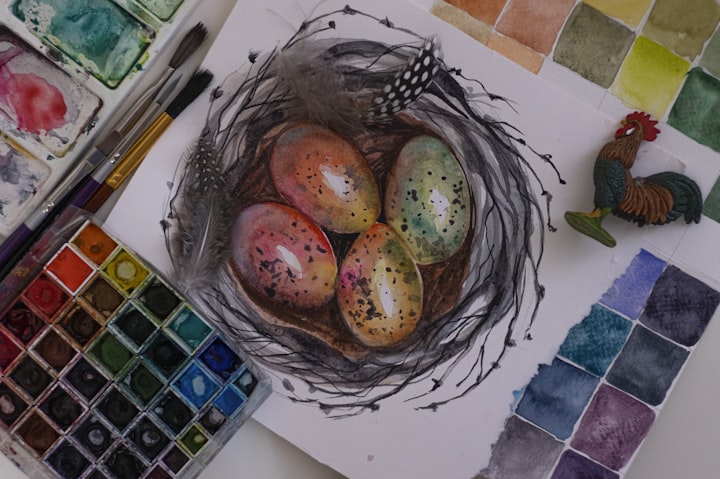4 Life-Changing Aphorisms From Goethe's Philosophy
#1 - Love is of the greatest value, so long as we are not carried away by it

Johann Wolfgang von Goethe (August 28, 1749 - March 22, 1832) was a German polymath - a novelist, dramatist, scientist, poet, and diplomat for more than 10 years for the Republic of Weimar.
Goethe was a reservoir of philosophical wisdom. He gained wisdom by spending his life learning, deep thinking, and disseminating knowledge across a variety of fields. A literary celebrity at the age of 25 following the success of his book The Sorrows of Young Werther to his first major scientific work, Metamorphosis of Plants, was published after he returned from a tour of Italy in 1788.
This article would focus on four of his life-changing aphorisms reflecting his personal and literary journey.
1. "Love is of the greatest value, so long as we are not carried away by it."
After Goethe completed his law from Leipzig University in 1768, he established his own legal practice. While working, he fell in love with Charlotte Buff, who was already engaged to one of his colleagues, Johann Christian Kestner.
His unrequited love inspired him to write a novel The Sorrows of Young Werther that garnered him international acclaim and became one of his best-known works. Napolean Bonaparte considered it as one of the greatest literary works in European literature.
The Sorrows of Young Werther is a loosely based autobiographical epistolary that narrates the story of a protagonist Werther, who falls madly in love with a girl, Charlotte, despite knowing the fact that she is engaged to another man. The novel ends on a very miserable note when Werther kills himself.
After writing this intense novel, Goethe's mindset gradually shifted from romanticism towards an ideology of love called "classicism". While; it does not mean that Goethe completely condemned love but he weighed the pros and cons of being carried away in love.
2. "Nothing can be compared to the new life that the discovery of another country provides for a thoughtful person. Although I am still the same I believe to have changed to the bones."
From 1786 to 1788, Goethe visited Italy and realized that traveling to another part of the world boosted his aesthetic and philosophical development. He wrote a non-fiction - Italian Journey in the form of a diary to narrate all his traveling experiences and events.
For Goethe, Italy was the warm passionate south as opposed to the dank cautious north; the place where the classical past was still alive, although in ruins; a sequence of landscapes, colors, trees, manners, cities, monuments he had so far seen only in his writing.
He visited Naples, Sicily, and was awestruck climbing Vesuvius and visiting Pompeii. It was in Rome, he met prominent artists like Angelica Kauffman and became friends with her.
3. "Nothing is more highly to be prized than the value of each day."
Goethe lived a fulfilling life. Being a diplomat, he worked in the administration field to implement his ideas practically and bring them into practice.
Additionally, he wrote dramas to augment his creative ability. One of his plays Faust became a sensation and was performed in almost all German-language stages. Faust is considered Goethe's magnum opus and one of the greatest works in German literature.
An honest man, Faust, selling his soul to the demon, Mephistopheles, in exchange for worldly pleasures and carnal activities is a metaphor for a modern society where people are enticed by transient lifestyle and become corrupted.
Goethe experimented in almost every field in the art world utilizing each day and making his life meaningful.
4. "Science arose from poetry… when times change the two can meet again on a higher level as friends."
Goethe was one of the European philosophers who were equally interested in learning science and philosophy. He produced his first major scientific work Metamorphosis of Plants and then Theory of Colors, which discussed phenomena like refraction and shadows. Although many physicists rejected his book, it did give a starting point to many artists and philosophers to continue research in color theory.
Last thoughts
Goethe felt, "we all are links to the human chain and if we do our job right, there will be many links to come."
One must be something in order to do something. Dante seems to us great; but he had the culture of centuries behind him. The house of Rothschild is rich; but it has taken more than one generation to accumulate such treasures… Whoever will produce anything great, must so improve his culture that, like the Greeks, he will be able to elevate the mere trivial actualities of nature to the level of his own mind, and really carry out that which … either from internal weakness or external obstacles, remains a mere intention.
About the Creator
Kamna Kirti
Art enthusiast. I engage with art at a deep level. I also share insights about entrepreneurship, founders & nascent technologies.
https://linktr.ee/kamnakirti






Comments
There are no comments for this story
Be the first to respond and start the conversation.